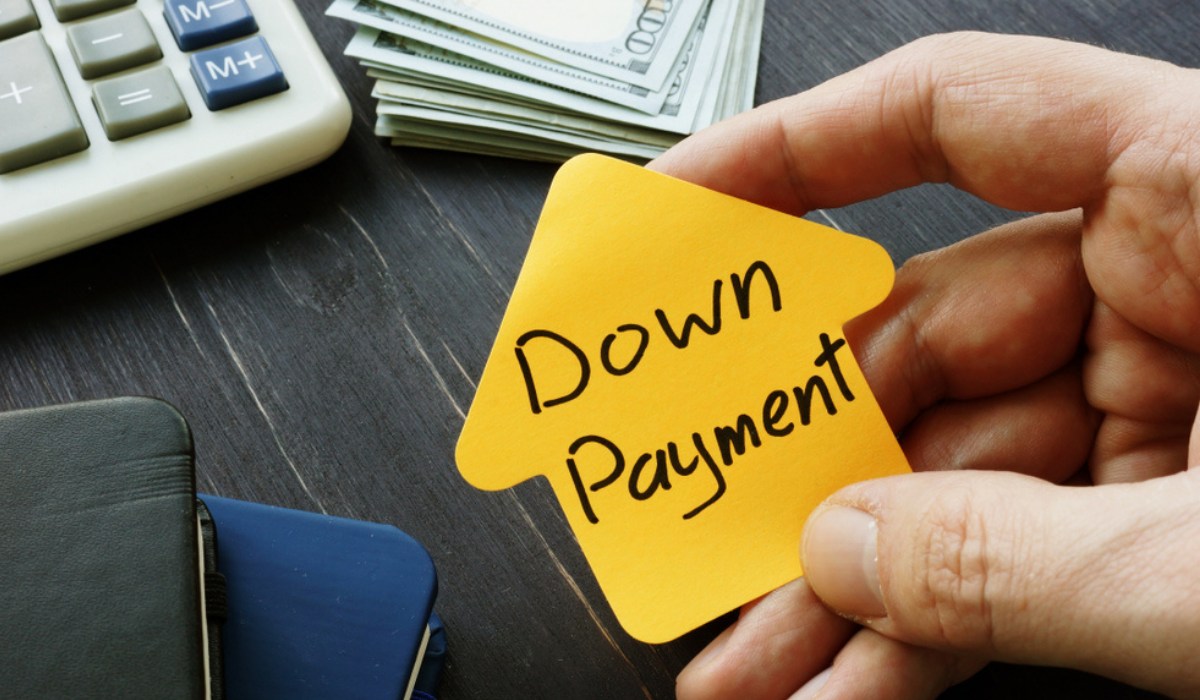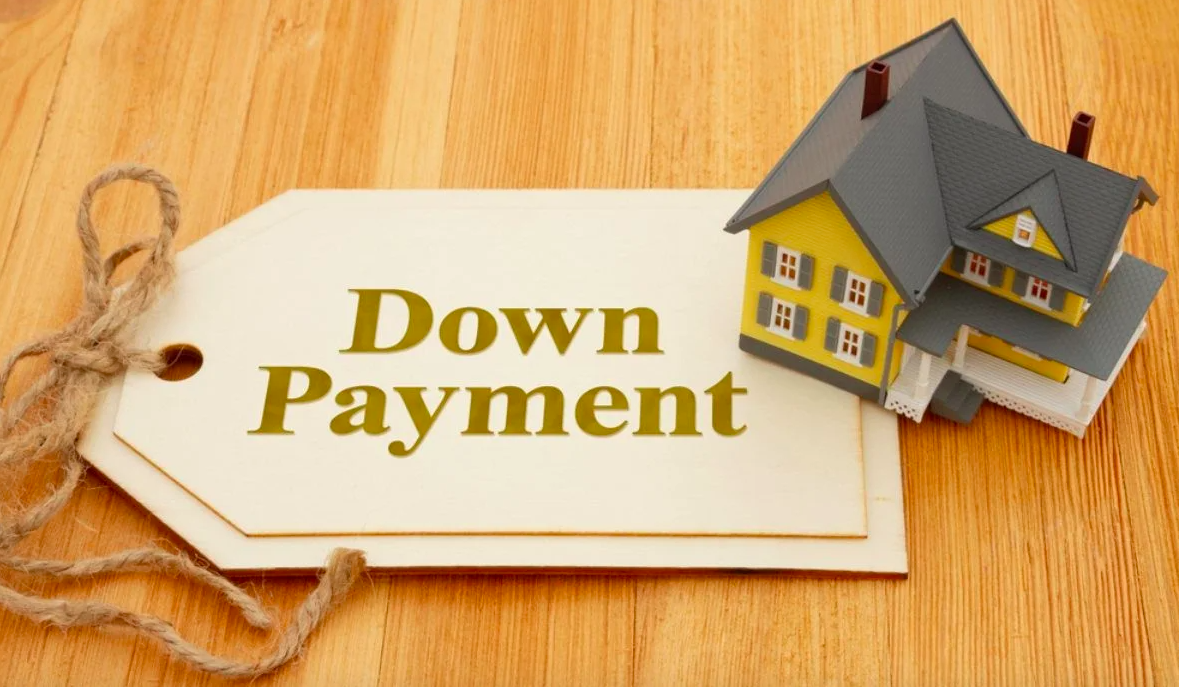The Down Payment is the sum that a buyer pays upfront when purchasing a House. The Down Payment is the percentage of the Home’s purchase that a homebuyer pays upfront when they close their home loan. It is the initial cash payment the buyer makes during the real estate transaction and represents a percentage of the total purchase price of the home. When Applying for a Mortgage Loan to buy a House, the Down Payment is a contribution towards the purchase and represents the initial ownership stake in the Home. The Mortgage Lender provides the rest of the money to purchase the property.
Most homebuyers have to pay a portion of the property’s purchase price upfront and this amount is known as a Down Payment. The required Down Payment is usually determined by the type of mortgage loan chosen by a borrower, their financial situation, and the type of property they are purchasing. A Down Payment can significantly reduce the amount the borrower owes to the mortgage lender, the amount of interest they will pay over the life of the loan, and the monthly payment amounts. The higher the Down Payment the less the homebuyer will need to borrow to complete the transaction and reduce the interest paid over the long term.
Down Payment can range between 3% and 20% of the purchase price, depending on the loan type. Some loan programs don’t require a Down Payment at all. If a homebuyer got a mortgage for 100% of the purchase price, their Down Payment would be 0%. If they got a mortgage for 80% of the purchase price then their Down Payment would be 20%. For Conventional Loans and FHA Mortgage Loans the size of the Down Payment determines how much the homeowner will pay for Mortgage Insurance. Making the larger Down Payment upfront reduces monthly mortgage payments and saves homebuyers money on interest in the long run.
What Is a Down Payment on a House?
A Down Payment is the initial non-refundable payment that is paid upfront the buyer makes during a real estate transaction. The remaining payment is paid by obtaining a loan from a bank or financial institution. A Down Payment is the percentage of the purchase price that a homebuyer doesn’t finance. A Down Payment is primarily used for real estate purchases, where the homebuyers pay 5% to 20% of the total value of the purchase price. Mortgage Lenders require a Down Payment for most mortgages. However, some types of loans backed by the federal government may not require Down Payments.
How Does Down Payment Work?
A Down Payment shows Mortgage Lenders that they are serious enough about homeownership to invest their savings in the property. Their investment helps demonstrate that they think the property is a wise purchase and that they are committed to paying the mortgage loan they are asking for. No rational person will throw their savings at a property they think is worth less than the asking price or that they plan to abandon if times get tough. Since the mortgage lenders are investing more money in the property than they are, they will order an appraisal to get independent, professional opinions on the property’s value. They will also check their credit score, income details, and Debt to see if they will be able to Pay the Mortgage Loan.

What Are the Minimum Down Payment Requirements?
The Minimum Down Payment requirements for a house vary depending on the type of mortgage the homebuyers plan to apply to purchase a home.
- Conventional Mortgage: Some Conventional mortgage loans require as little as a 3% Down Payment, provided they meet certain income limits. These Mortgage Loans are not backed by the government but they follow the Down Payment Guidelines set by Government-Sponsored Enterprises (GSE) such as Fannie Mae and Freddie Mac.
- FHA Loans: These Mortgage loans are backed by the Federal Housing Administration and require as little as 3.5% of a Down Payment if a homebuyer has a credit score of at least 580. If a homebuyer has a Credit score between 500 and 579 then the FHA Mortgage Loan requires 10% Down Payment.
- VA Loans: These Mortgage Loans are Guaranteed by the U.S. Department of Veterans Affairs. VA Loans usually do not require Down Payments. These Mortgage Loans are for current and veteran military service members and eligible surviving spouses.
- USDA Loans: These Mortgage Loans are backed by the U.S. Department of Agriculture’s Rural Development program. USDA Loans usually do not require Down Payments. These Mortgage Loans are for rural and suburban home buyers who meet the program’s income limits and other requirements.
- Jumbo Loans: These Mortgage Loans are Home Loans that fall outside of the Federal Housing Finance Agency’s conforming Loan limits. Jumbo Loans can’t be guaranteed by the GSEs and the Mortgage lenders tend to ask for higher down payments to offset some of the risk.
What Are The Benefits of Large Down Payments?
Here are several benefits of Large Down Payments, such as:
- Lower Rates and Premiums: Mortgage Lenders appreciate large down payments because it lowers their financial risk and shows that borrowers are motivated buyers. The Larger the Down Payment, the less the homeowners pay each month in principal and interest.
- Avoid Mortgage Insurance: Homebuyers generally need to put 20% Down Payment to avoid paying Private Mortgage Insurance (PMI) on a Conventional Mortgage Loan. On FHA Mortgage Loans, a 10% Down Payment can be the difference between paying mortgage insurance for the life of the loan or for the first 11 years.
- Lower Debt-to-income Ratio (DTI): A Lower Debt-to-income Ratio (DTI) can mean more borrowing power. Most Mortgage Lenders require a DTI of around 43% or lower. A high DTI can hurt the chances of getting approved for loans.
How To Calculate A Down Payment?
Here are two ways to calculate a Down Payment. The first is based on the dollar amount they have saved and the second is based on the minimum percentage they need to put down.
Amount Saved / Purchase Price = Percentage Down
Percentage Down X Purchase Price = Amount to Save
How To Obtain A Good Down Payment?
Here are some common ways that Homebuyers can obtain funds for a Down Payments:
- Use a Tax-free Savings Account: Homebuyers can use the money saved in a Tax-free savings Account towards the Down Payments.
- Save Systematically: Saving a fixed amount of money each month can help accumulate a substantial to put towards a down payment.
- Borrow from the Family Members: Homebuyers can borrow money from family members and Pay higher Down Payments. It will allow the homeowners to secure a lower interest rate and avoid paying mortgage insurance.
- Join a first-time homebuyer program: The program provides first-time Homebuyers with a percentage of the purchase price to put towards the Down Payments.
Frequently Asked Questions (FAQs)
Question 1: Why Do Lenders Require a Down Payment?
Answer: Down Payment reduces the risk for mortgage lenders. Not only do they reduce the amount of money that needs to be lent out, by acting as the cost of entry for a loan, but a Down Payment can also be used to prove that the borrower is serious about a Loan.
Question 2: Why Is It Important to Have Down Payment?
Answer: The Down Payment will reduce the loan amount, Interest cost, and monthly payments. The Amount of Down Payment may also reduce the interest rates provided by the Mortgage Lenders.
Question 3: How Much is a Down Payment?
Answer: The Down Payment amount varies depending on the cost of the home and what percentage of the offer price they are making as a payment. Using the Down Payment calculator can help homebuyers easily see down payment amounts and how altering the down payment affects monthly mortgage payments.
Question 4: Does a Down Payment affect monthly mortgage Payments?
Answer: A larger Down Payment usually means smaller monthly mortgage payments. If the loan balance is smaller, then monthly mortgage payments are smaller.
The Final Verdict
A Down Payment is a crucial part of the home loan, but it is only a small piece of the overall financial picture. Knowing the Down Payment amount they are comfortable with can help them search for homes in their budget and keep them draining their savings.
